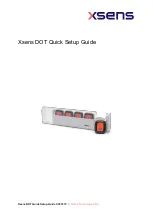
185
External control Q&A
9.5 External control Q&A
This section presents a list of frequently asked questions about external control for your reference.
Common Questions
Answers
How do I connect external trigger input?
Connect the
TRIG
―
―
―
―
input pin to an ISO_COM pin using a switch
or open-collector output.
Which pins are common ground for input
and output signals?
The ISO_COM pins.
Are the common (signal ground) pins
shared by both inputs and outputs?
Both common ground pins can be shared by inputs and out
-
puts.
How do I confirm output signals?
Confirm voltage waveforms with an memory recorder and
oscilloscope.
To do this, the output pins such as
EOM
―――
and comparator deci-
sion outputs need to be pulled up (through several k
Ω
).
How do I troubleshoot input (control) signal
issues?
For example, if triggering does not operate properly, bypass
the PLC and short the TRIG pin directly to an ISO_COM pin.
Be careful to avoid power shorts.
Are the comparator decision signals (HI,
IN, LO) retained during measurement (or
can they be off)?
They are initially set to be confirmed at the end of measure
-
ment and turned OFF when measurement starts. However, it
is possible to change the settings so that the judgment results
from last time are also stored during measurement.
(See "Setting the delay time (from judgment result output to
EOM output) and judgment result reset operation" (p. 181).)
When are measurement error signals
displayed?
The ERR signal will be output in the following circumstances:
•When sampling error
•When contact error
•When High-Z reject error
•When constant voltage/constant current error
•When voltage/current limit value exceeded error
See "Output signals when errors occur" (p. 170).
Is a connector or flat cable for connection
provided?
A connector and cable are not supplied, so you need to pro
-
vide them yourself.
Is direct connection to a PLC possible?
Direct connection is supported for relay or open-collector
outputs and positive-ground optocoupler inputs. (Before con
-
necting, confirm that voltage and current ratings will not be
exceeded.)
Can external I/O be used at the same
time as RS-232C or other communica-
tions?
After setting up communications, it is possible to control mea
-
surement with the TRIG signal while acquiring measurement
data via a communications interface.
How should external power be connected?
All of the instrument’s EXT I/O connector’s input and output
signals are driven by the instrument’s internal isolated power
supply. If the power supply needed to acquire output signals
satisfies the internal isolated power supply’s specifications
requirements (4.5 to 5 V, 100 mA), use the internal isolated
power supply (No. 8 pin). If not, supply power from an exter
-
nal source such that the maximum load voltage (30 V) is not
exceeded. Do not connect the power supply to the internal
isolated power supply (No. 8 pin).
I can’t acquire the EXT I/O output signal.
(I don’t know what type the output circuit
is.)
EXT I/O output is open-drain output. Please connect wiring
properly for open-drain output. (see p. 176.)
9
External Control
Summary of Contents for IM3536
Page 20: ...16 Operating Precautions ...
Page 34: ...30 Screen Layout and Operation ...
Page 140: ...136 Testing the System Self diagnosis ...
Page 224: ...220 About Measurement Times and Measurement Speed ...
Page 240: ...236 Discarding the Instrument ...
















































